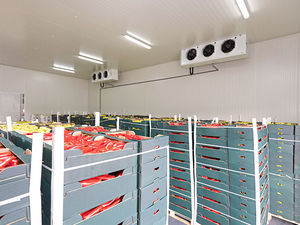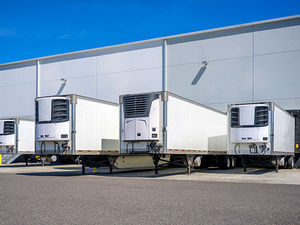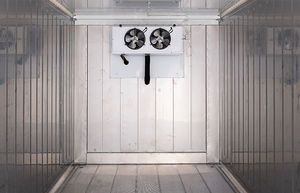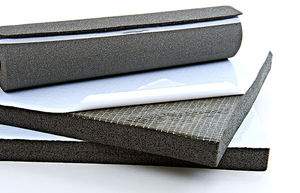 By 2100, there will be an estimated 11.2 billion people on earth. This sharp population increase will be accompanied by strains on natural resources including energy, minerals, water, and most drastically, the global food supply cold chain. To create more resilient communities and support population growth, the cold chain must become smart, sustainable, and inclusive. Doing so, however, will require efficient refrigeration systems for refrigerated production, storage and distribution activities. Armacell manufactures innovative, technical insulation solutions and components that conserve energy by helping reduce fuel consumption and decreasing CO2 emissions.
By 2100, there will be an estimated 11.2 billion people on earth. This sharp population increase will be accompanied by strains on natural resources including energy, minerals, water, and most drastically, the global food supply cold chain. To create more resilient communities and support population growth, the cold chain must become smart, sustainable, and inclusive. Doing so, however, will require efficient refrigeration systems for refrigerated production, storage and distribution activities. Armacell manufactures innovative, technical insulation solutions and components that conserve energy by helping reduce fuel consumption and decreasing CO2 emissions. Low temperature systems in the food supply chain need proper insulation to remain energy efficient, control condensation, provide system reliability, and support system longevity. Temperatures for refrigeration and cold chain transportation can range from -100°F to 31° and these systems are found in food processing, cold transport, cold storage facilities, and supermarkets. When operating at such low temperatures, moisture in the air will condense and freeze on the cold pipe surface. Unless the system is protected by sufficient thickness and adequate vapor retarders, insulation can become wet, causing corrosion and maintenance issues, and thus diminishing the insulation’s effectiveness.
Low temperature systems in the food supply chain need proper insulation to remain energy efficient, control condensation, provide system reliability, and support system longevity. Temperatures for refrigeration and cold chain transportation can range from -100°F to 31° and these systems are found in food processing, cold transport, cold storage facilities, and supermarkets. When operating at such low temperatures, moisture in the air will condense and freeze on the cold pipe surface. Unless the system is protected by sufficient thickness and adequate vapor retarders, insulation can become wet, causing corrosion and maintenance issues, and thus diminishing the insulation’s effectiveness.  Food transportation is a real future challenge on a global scale due to increasing food miles during travel. Food miles are calculated by CO2 emitted per mile per ton of food and the distance food moves from its origin to its destination. To help reduce the energy use of a refrigeration system supporting the transportation of food, it is critical to insulate chilled pipes, air handling units, and cooling systems to control temperatures. Selecting closed-cell elastomeric foams, like ArmaFlex®, is one way to prevent moisture (and therefore heat gain) from invading the piping system. With a water vapor permeability of 0.050, ArmaFlex insulation is nearly waterproof and does not require an additional vapor retarder. Additionally closed-cell foam insulation is much less vulnerable to punctures and tears that can impair the thermal effectiveness of open cell and fibrous materials.
Food transportation is a real future challenge on a global scale due to increasing food miles during travel. Food miles are calculated by CO2 emitted per mile per ton of food and the distance food moves from its origin to its destination. To help reduce the energy use of a refrigeration system supporting the transportation of food, it is critical to insulate chilled pipes, air handling units, and cooling systems to control temperatures. Selecting closed-cell elastomeric foams, like ArmaFlex®, is one way to prevent moisture (and therefore heat gain) from invading the piping system. With a water vapor permeability of 0.050, ArmaFlex insulation is nearly waterproof and does not require an additional vapor retarder. Additionally closed-cell foam insulation is much less vulnerable to punctures and tears that can impair the thermal effectiveness of open cell and fibrous materials. 
Armacell’s closed-cell elastomeric foam products can help to create a more smart, sustainable, and inclusive food supply chain to foster resilient communities. Future refrigeration systems supporting large-scale, global food supply chains will require efficient products to conserve energy and keep food miles to a minimum to help feed the world.
June 23, 2021
